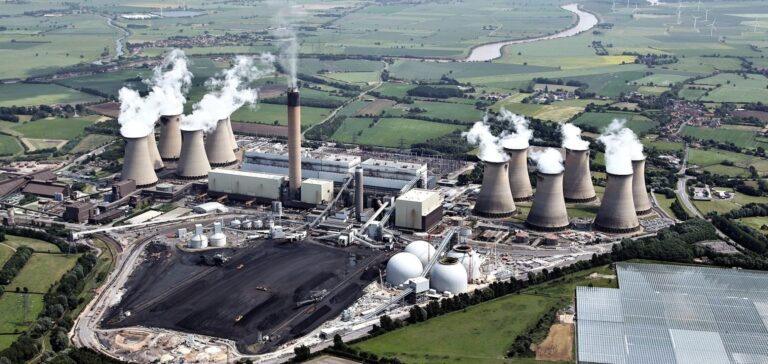The British energy regulator Ofgem is investigating Drax and its claim that the wood used to generate electricity in its plants is renewable. “Ofgem recently informed Drax that it would begin an audit to verify the issue of certification of renewable origin” of the wood used in the company’s power plants, a Drax spokesperson said in a statement received by AFP.
However, it tempers the scope of this investigation by assuring that it is a “normal audit under Ofgem’s renewables program”, which requires energy companies to provide certificates of origin to the regulator to show that the wood used is renewable. The Financial Times writes on Wednesday that Ofgem has commissioned an investigation into the British energy company to assess its compliance with rules on the renewable origin of the electricity it generates, “after growing doubts about the wood burned to generate electricity”, particularly in the wake of a BBC documentary questioning the renewable origin of wood imported from Canada.
According to the British financial daily, Ofgem has commissioned an independent investigation by the American consultancy firm Black and Veatch (B&V). For his part, a spokesman for Ofgem told AFP that the energy regulator “takes compliance with the program” of renewables “extremely seriously”. “When we identify or suspect that requirements are not being met, we may decide to investigate further,” he added. “We undertake regular additional audits of Drax’s compliance with the Renewables Obligation Scheme” in its biomass power generation, “through an independent auditor. This is an additional layer of protection,” the Ofgem spokesperson explained.
Biomass remains highly contested
The FT notes that Will Gardiner, CEO of Drax, was until last month on the board of the Sustainable Biomass Program, which provides certificates of renewable origin. Biomass, which is wood burned in a power plant to generate electricity, is highly contested by many environmental NGOs, but advocates believe it is carbon neutral because the CO2 emitted by the wood when it burns is, they say, offset by that absorbed by the trees used when they were growing.
The environmental association Biofulwatch also organized a demonstration in London on Wednesday to denounce the technology for capturing and storing CO2 from the combustion of wood used in electricity generation. This technology “is not only unproven”, but is also “a dangerous distraction from the urgent task of reducing CO2 emissions by ending Drax wood burning”, Biofuelwatch explains in a flyer distributed at the event.
Abi Perrin, a biologist participating in this event, believes that “Drax gives itself the image of a renewable energy company (…) but this is not the case, in fact their activities exacerbate the damage”. Meanwhile, on the London Stock Exchange, Drax’s shares were up 2.45% to 634.40 pence, around 15:00 GMT, as the group announced a share buyback program for 150 million pounds on Wednesday.
Drax says that “inflationary pressures, primarily in transportation, water and electricity, have contributed to higher production costs for wood chips for biomass,” which is expected to increase the group’s overall production costs for the year. Finally, in a press release on its first quarter performance, the energy company announced the closure of its two coal-fired power generation units, which began to be dismantled in April.





















